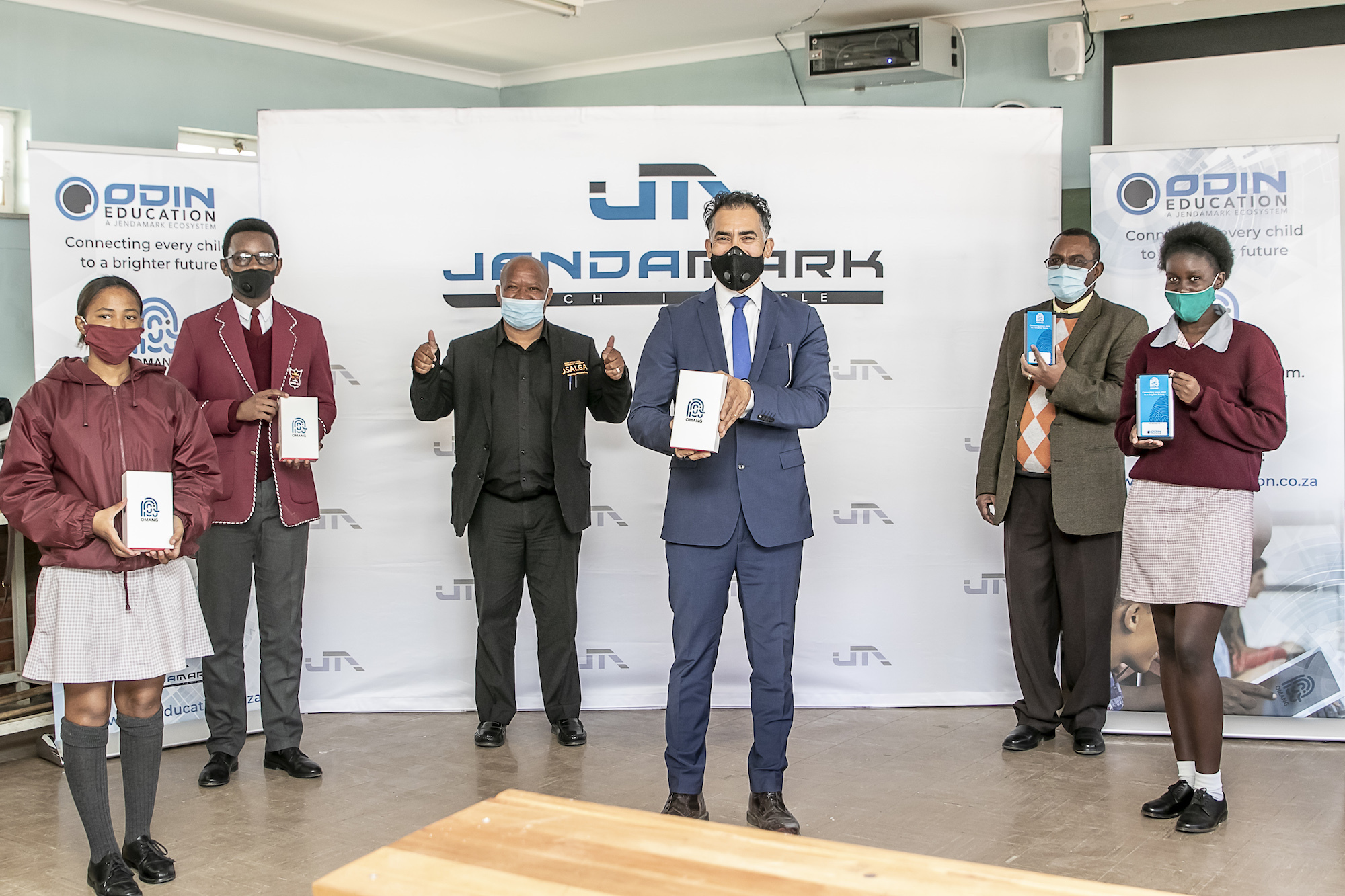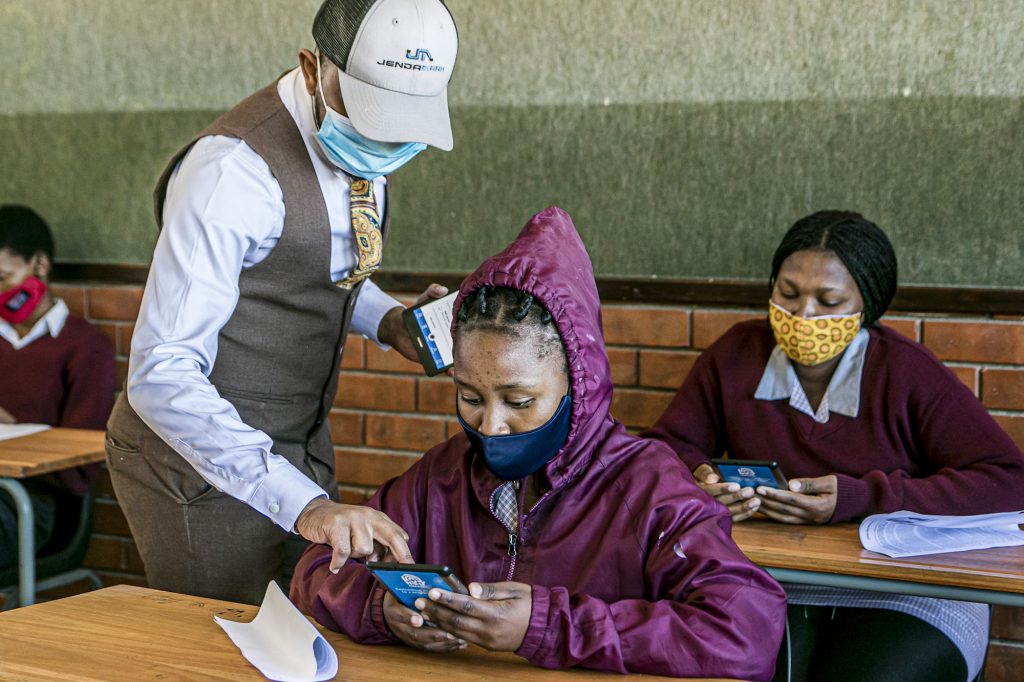
Broadening their educational horizons beyond their Karoo town seemed like a distant dream, but Grade 11 learners at Nqweba Secondary School in Graaff-Reinet are now connected to the digital world of knowledge thanks to a cutting-edge e-learning device.
The Omang ed-tech tablet, developed and donated by Jendamark Automation, will help the 114 learners to study remotely as Covid-19 continues to disrupt what remains of the academic year. The device will also provide critical educational support as they progress to the final year of high school next year.
“We are over the moon,” said headmaster Zolile Malotana about the school’s newfound access to digital resources.

Each learner received a personalised android tablet, pre-loaded with their subject textbooks, educational websites and learning apps, plus 2GB of free data per month supplied by leading network providers.
“The Omang device will help me to focus and be more alive to my studies,” said an excited Khazimla Pikashe.
“It has been very difficult because it has been months that we have been at home. We don’t have access to the internet and we don’t have money to buy data every day so that we can interact with our teachers. We don’t know where we stand with our schoolwork.”
The Omang device also allows the school’s teachers to support learners remotely by uploading their own content, including video lessons, old exam papers and notes, setting multiple-choice tests and answering questions via safe class chat forums.
Pikashe said the additional resources would help him improve his grades even after classes resumed.

“It means a lot. For example, we don’t have Life Sciences textbooks in my school, and it’s a very difficult subject. It will help us so much to access information beyond what our teacher tells us in class.”
Graaff-Reinet executive mayor Deon de Vos said the youth of the town faced many socio-economic problems such as unemployment and substance abuse.
“But there are those young people who stand out, and education is one of the tools they can use to liberate themselves from the conditions they find themselves in,” said De Vos.
Describing the quintile-three school as a worthy beneficiary, he said Nqweba’s teachers and learners were passionate about education, which was reflected in the 87% matric pass rate last year.
“I am very proud of the performance of this school, notwithstanding the challenges and conditions we are facing.
“This partnership will really assist in empowering our youngsters. This device and its Odin Education ecosystem makes it possible for them to reach out and see the world. They will make the best of it.”
Malotana said his teaching staff were delighted to receive Omang devices too.
“It’s going to help the teachers a lot because now, learners can communicate with their teachers about any challenges they are having and, similarly, if there’s something that comes up from the educator, it is easy for them to communicate with learners through the devices.”
Jendamark group managing director Quinton Uren said the Omang device had been piloted among a thousand Grade 12 learners from quintile one and two schools.

“Our research showed that what was needed was an affordable device that provides safe, controlled access to really useful educational resources. The result is our platform, which is essentially a protected digital classroom.
“What sets Omang apart is that it is a learning device, and not just a smartphone with data. For example, it cannot be used for unsupervised social media consumption, which can be both time-wasting and dangerous for kids.
“It is designed to support under-resourced schools and give learners access to a really focused, digitally enhanced learning experience that puts them on the same educational footing as their peers,” said Uren.
The pre-loaded devices can be purchased by schools or provincial education departments at a monthly cost of R134 per learner, including 2GB of data and full tech support.
For more information, visit www.odineducation.co.za